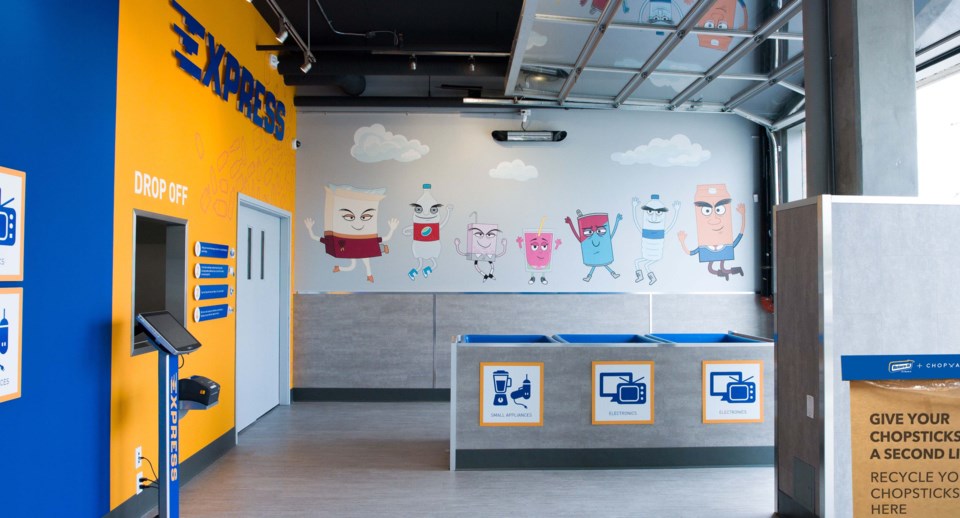Do you have chopsticks lying around in kitchen drawers now that you’re ordering-in more because it’s cold out? A new North Vancouver pilot program might just be the thing you need.
In collaboration with Vancouver-based company ChopValue, Return-It is now collecting chopsticks for recycling at its new Lower Lonsdale Express Plus site.
Over 90,000 chopsticks are thrown out in Vancouver daily, according to ChopValue, and since beginning its operations in 2016, the organization has diverted more than 38 million chopsticks from landfills.
“Chopsticks can be turned into many useful products, so we’re urging consumers to avoid throwing them in the trash and instead bring your chopsticks for recycling at our Return-It collection site in North Vancouver,” said Allen Langdon, president and CEO of Return-It.
“This partnership with ChopValue is a great example of how we can leverage our collection network to divert material from landfill and support innovative companies that share our interest in developing a more circular economy where materials are reused rather than disposed of,” he said.
Most chopsticks we use are made from bamboo harvested in China. One of the fastest growing wood grasses, the bamboo is then dried and shaped into chopsticks before being shipped across the Pacific Ocean to North America.
ChopValue remanufactures chopsticks into new “sustainable essentials” such as furniture, cutting boards and home décor.
“We are excited to partner with Return-It because it brings us one step closer to engaging our community in emptying their kitchen drawers filled with takeout chopsticks,” ChopValue founder Felix Böck said.
“By recycling through this Return-It site, residents can be part of the solution by helping us close the loop on neglected resources and transform them into beautiful functional products — all without using any virgin materials,” he said.



